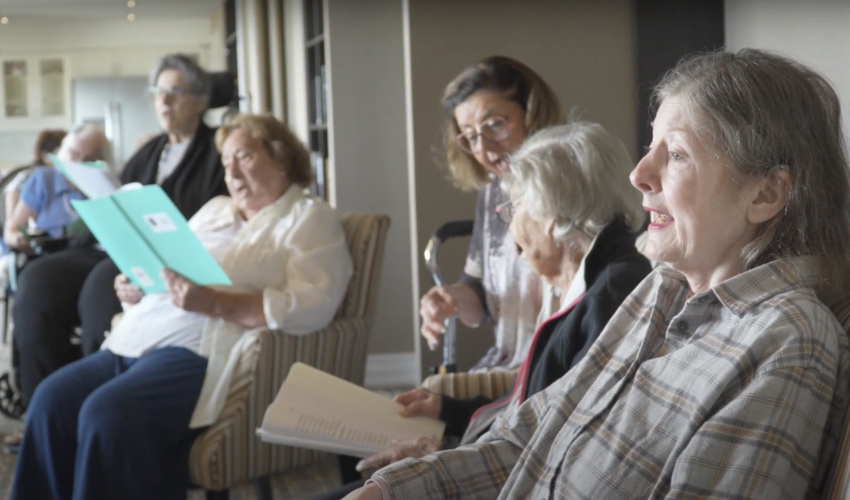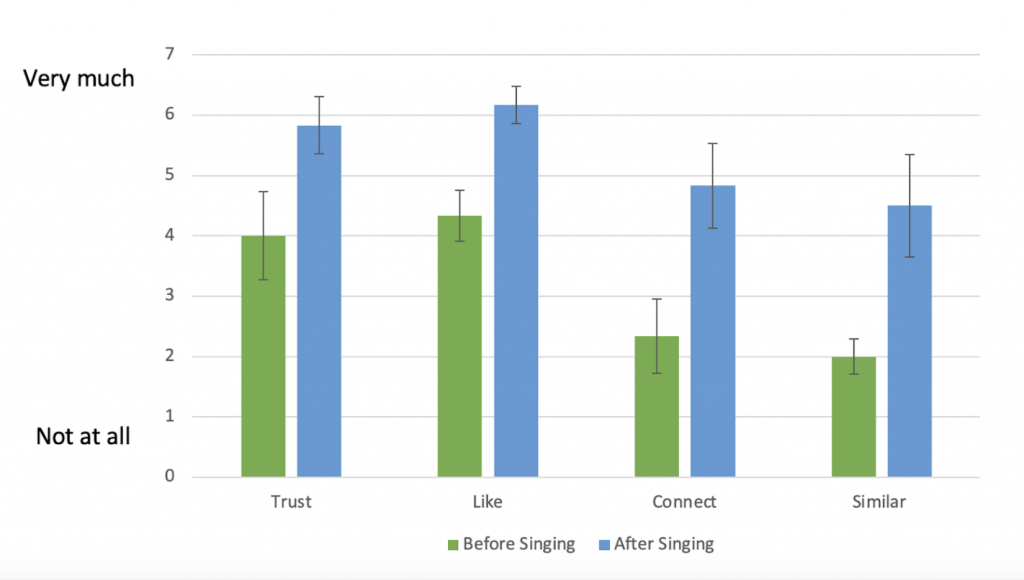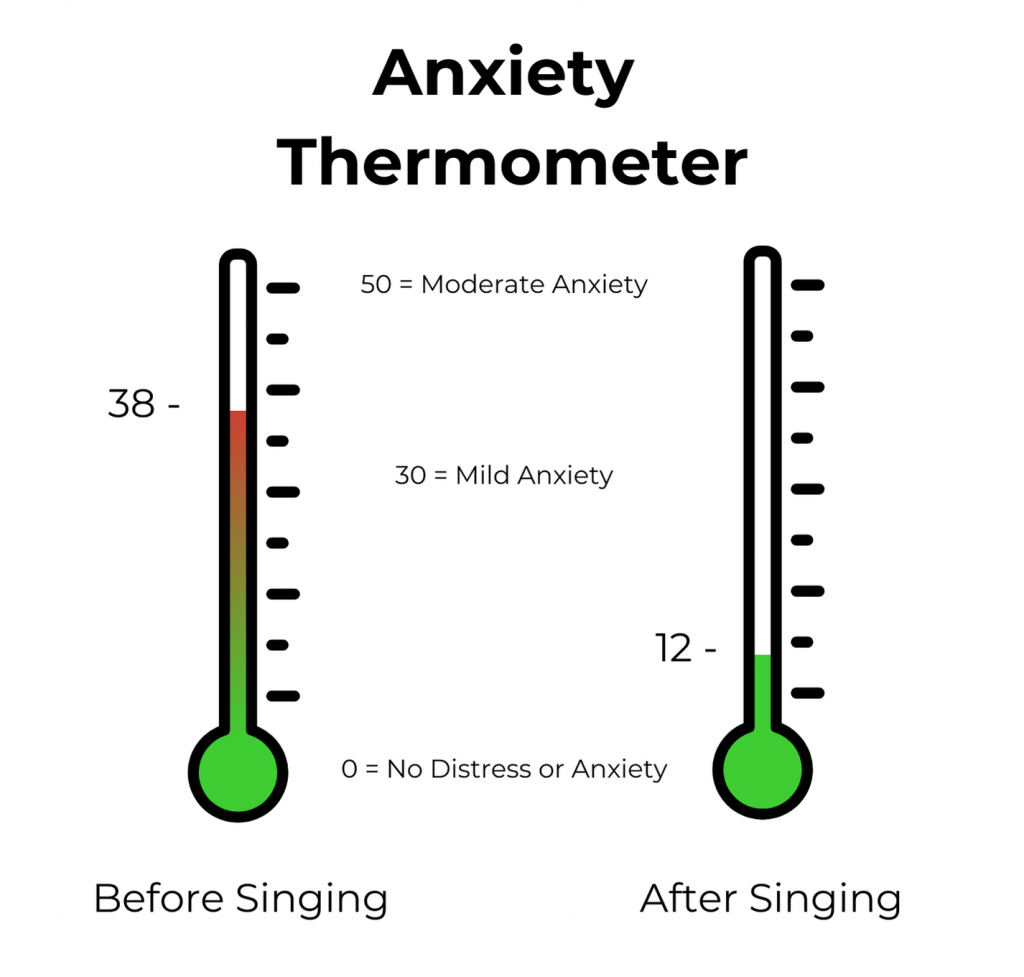Singing on prescription: Breathing new life into care pathways for individuals with lung health challenges

“A lot of people don’t like to go out because of their coughing and stuff like that… But here, you want to cough, you cough. If you can sing, you can sing. And if you can’t, you can’t you’re still involved in a group, and you’re still using your lungs.”
– “Singing on Prescription” Pilot participant
August marked the conclusion of SingWell’s “Singing on Prescription” pilot at the Chigamik Community Health Centre in Midland, Ontario –– conducted in collaboration with Dr. Rebecca Barnstaple and Stephen Ruppert, a local music instructor who led the singing group. Together, we explored a new pathway for medical professionals to support individuals with breathing disorders: “prescribing” participation in our weekly SingWell singing group.
SingWell’s research has explored how group singing can promote the health and wellbeing of individuals with breathing disorders. This pilot deepened our understanding of those benefits, while testing the practical feasibility of a “singing on prescription” approach. Our goal was to establish a foundation for a cost-effective “singing on prescription” approach to improving wellbeing.
Here’s a snapshot of our project and what’s next:
Background and Rationale
Social prescribing addresses social determinants of health and loneliness through non-clinical services, such as community singing groups. Research has demonstrated that group singing offers psychosocial benefits, such as improved mood, reduced stress, and enhanced social connection, while also supporting physical health, especially for those with breathing disorders. Although singing can improve lung function and vocal quality, its impacts within a social prescribing context are under-researched. This project aimed to fill that gap by integrating a singing program into a social prescription approach.
Singing Program Description
Individuals with breathing disorders received a “prescription” to join our singing program. Held weekly at Chigamik Community Health Centre, each 60-minute session included gentle physical warmups, breathing exercises, vocal warmups, and repertoire practice, followed by social time with coffee, tea, and cookies. The program was designed to be accessible for all singing abilities. No prior singing experience or auditions were required!
Before and after the 12-week program, psychosocial wellbeing was assessed through a series of questionnaires, including scales for loneliness, social connectedness, quality of life, and severity of respiratory disease. We also tested participants before and after 60 minutes of singing to gauge mood, social bonding, and states of anxiety. Additionally, we measured biosocial indicators including heart rate variability and levels of salivary cortisol and/or oxytocin.
Findings
Our data analysis is still underway, but we are excited to share some preliminary results. In particular, before and after 60 minutes of singing, participants reported:
- Increases in feelings of trust, liking, connection, and similarity with others in the group (see Figure 1)
- Decreases in levels of shortness of breath following singing.
- Decrease in levels of distress and anxiety (see Figure 2)


In qualitative interviews, participants expressed that they discovered a sense of purpose and connection through the community singing group. Participants initially struggled with anxiety, depression, and the physical limitations imposed by their condition; however, joining the singing group provided emotional support, personal growth, and a welcoming environment that encouraged social interaction and engagement. The sessions offered a casual and supportive space, helping participants find joy in singing and a renewed interest in music. All participants expressed a strong desire to continue the group singing sessions, recognizing their value for both physical and emotional wellbeing.
“I was nervous at first about coming, because I get panicky and stuff. But everybody was really warm and open. And, you know, if you start coughing your head off, you know, we were all in the same boat… And when I leave here, I feel really good. And I’m like, I’m shocked by it all. Yeah. I didn’t know I would feel this good.”
– “Singing on Prescription” Pilot participant
Future Directions
We are warming up our voices for a second season of the singing program at Chigamik CHC, beginning in October 2024. We anticipate that our findings will highlight the significant health and wellbeing benefits of group singing, as well as the cost-effectiveness of a “singing on prescription” pathway, paving the way for broader implementation in similar communities.